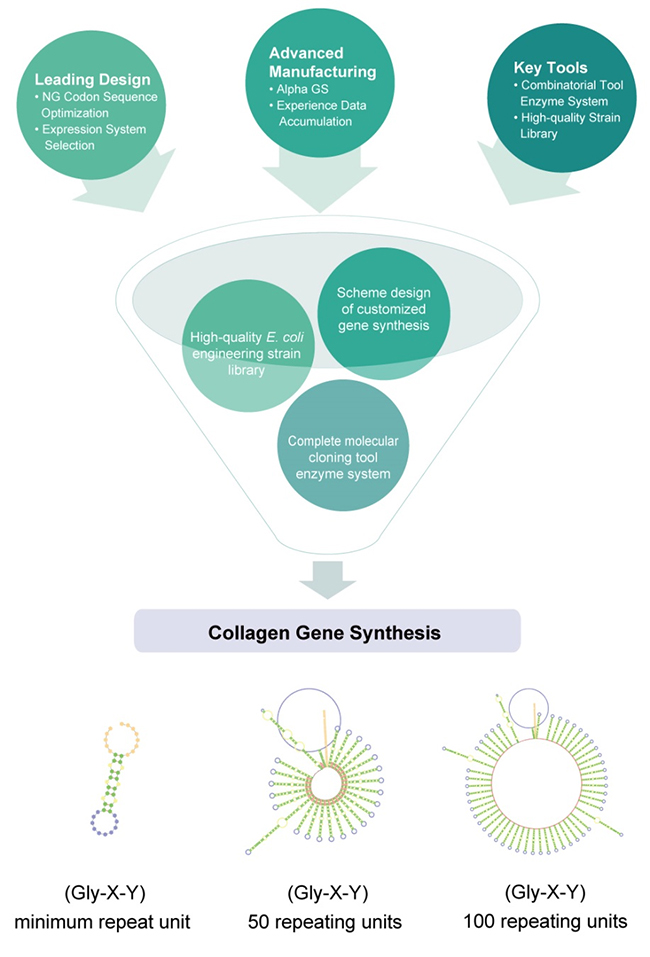Recombinant Collagen Gene Synthesis
In this case, Synbio Technologies successfully synthesized and delivered 100% accurate collagen high-repetitive gene sequences. We independently developed a variety of biological intelligent analysis tools such as Complexity Index (CI), NG Codon Optimization, AI-TAT, DNA Studio, etc., to quickly design and assemble genes. A high-quality strain library and a complete molecular cloning tool enzyme system are combined with our own patented reagents Syno Interlinkage and Syno Assembly to help you accelerate the optimization and application development of recombinant collagen production from the genetic source.


 DNA Synthesis
DNA Synthesis Vector Selection
Vector Selection Molecular Biology
Molecular Biology Oligo Synthesis
Oligo Synthesis RNA Synthesis
RNA Synthesis Variant Libraries
Variant Libraries Genome KO Library
Genome KO Library Oligo Pools
Oligo Pools Virus Packaging
Virus Packaging Gene Editing
Gene Editing Protein Expression
Protein Expression Antibody Services
Antibody Services Peptide Services
Peptide Services DNA Data Storage
DNA Data Storage Standard Oligo
Standard Oligo Standard Genome KO Libraries
Standard Genome KO Libraries Standard Genome Editing Plasmid
Standard Genome Editing Plasmid ProXpress
ProXpress Protein Products
Protein Products

































